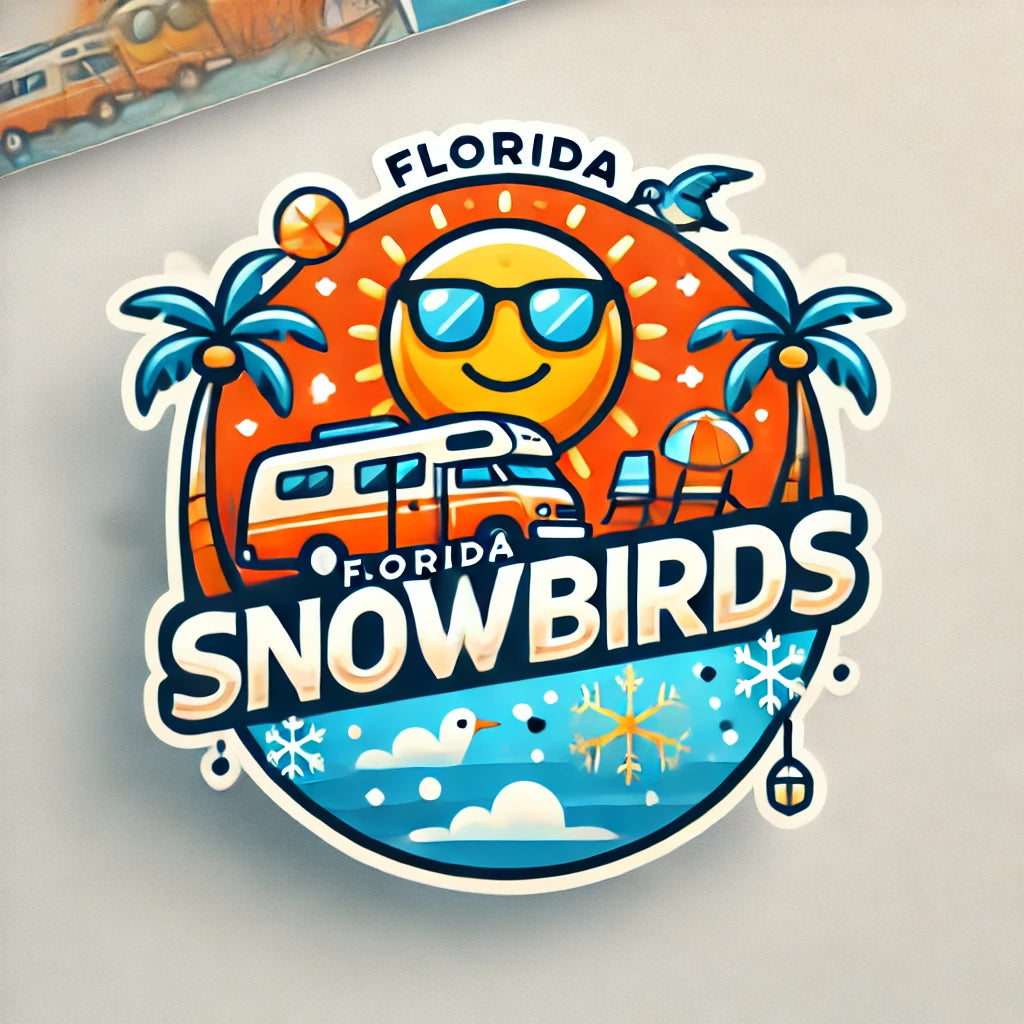
Florida Snowbirds: A Survival Guide for Locals and Visitors
Share
Florida Snowbirds: A Survival Guide for Locals and Visitors

Every winter, Florida's population swells by over 5% as more than a million "snowbirds"—seasonal residents from colder regions—flock to the Sunshine State. (Florida Smart) This annual migration transforms Florida into a bustling blend of cultures, accents, and increased activity. Whether you're a local adjusting to the influx or a snowbird settling into your winter haven, this guide offers insights to help everyone coexist harmoniously during the peak season.
Who Are Florida’s Snowbirds?
The Migration of Seasonal Residents
Snowbirds are typically retirees or part-time residents from northern U.S. states and Canada seeking to escape harsh winters. Popular destinations include Naples, Sarasota, and Palm Beach, where they often own second homes or secure seasonal rentals. This migration has been a tradition for over a century, significantly impacting Florida's demographics and economy. (Florida Smart)
Economic Contributions
The presence of snowbirds provides a substantial economic boost. In 2019, these seasonal residents contributed over $95 billion to Florida's economy and supported more than 1.6 million jobs. (Florida Realty Marketplace) Their spending spans housing, dining, entertainment, and healthcare services, invigorating local businesses during the winter months.
The Impact of Snowbirds on Florida
Boosting the Economy
Snowbirds' expenditures on housing, dining, entertainment, and healthcare services invigorate local businesses during the winter months. This seasonal influx is akin to a second holiday season, providing economic vitality across various sectors. (Florida Finance Blog)
Challenges for Locals
The arrival of snowbirds often leads to increased traffic, crowded public spaces, and longer waits at restaurants. While their economic contributions are significant, these seasonal changes require locals to adapt to a busier environment.
Tips for Snowbirds
1. Plan Early
Florida's peak season runs from November to April. To secure the best accommodations and travel arrangements, it's advisable to book several months in advance.
2. Engage with the Community
Participate in local events, join clubs, or attend community gatherings to integrate and build relationships with both fellow snowbirds and year-round residents.
3. Respect Local Customs
Understanding and respecting local traditions and practices fosters goodwill and enhances the experience for everyone.
Tips for Locals
1. Adjust Schedules
Planning activities during off-peak hours can help avoid congestion and reduce wait times.
2. Explore Lesser-Known Attractions
Visiting less frequented beaches, parks, and restaurants can provide a respite from the crowds and uncover hidden gems.
3. Embrace the Season
Recognizing the positive economic impact and cultural diversity that snowbirds bring can lead to a more welcoming and enjoyable season for all.
Bridging the Gap
The snowbird season is a time of change and opportunity. By fostering mutual respect and understanding, both locals and seasonal visitors can coexist harmoniously, making the most of what Florida has to offer during this vibrant period.
